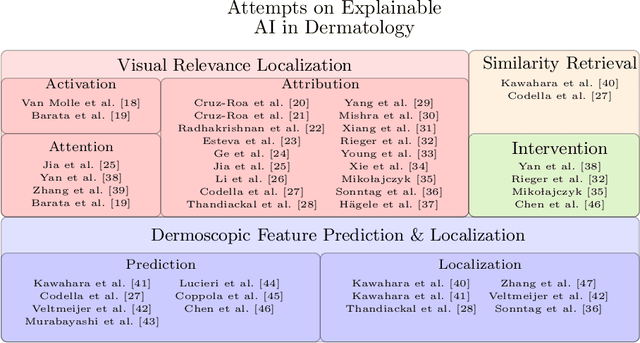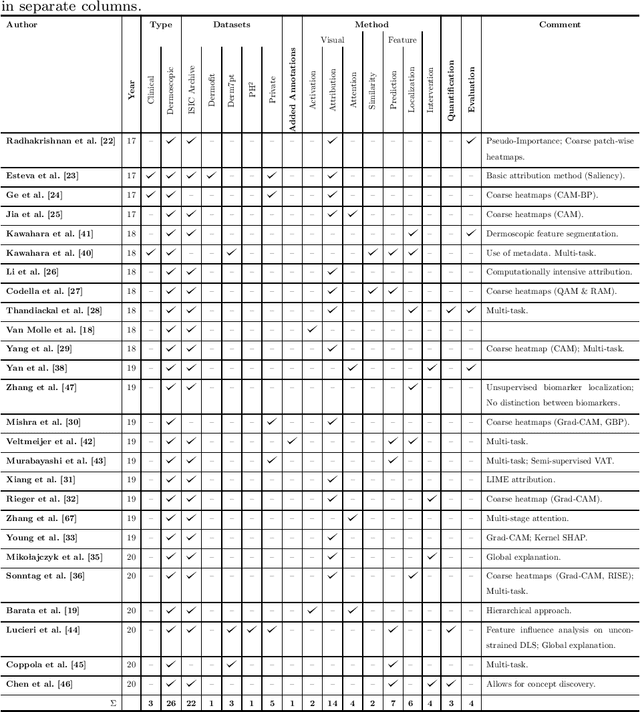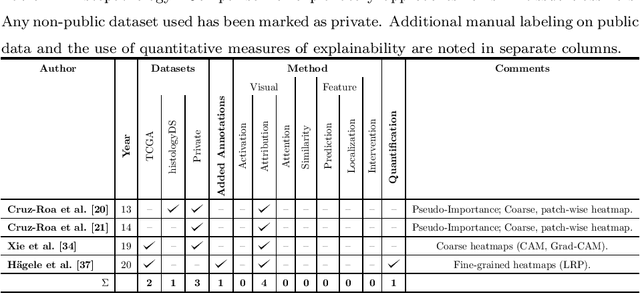Deep Learning Based Decision Support for Medicine -- A Case Study on Skin Cancer Diagnosis
Paper and Code
Mar 02, 2021



Early detection of skin cancers like melanoma is crucial to ensure high chances of survival for patients. Clinical application of Deep Learning (DL)-based Decision Support Systems (DSS) for skin cancer screening has the potential to improve the quality of patient care. The majority of work in the medical AI community focuses on a diagnosis setting that is mainly relevant for autonomous operation. Practical decision support should, however, go beyond plain diagnosis and provide explanations. This paper provides an overview of works towards explainable, DL-based decision support in medical applications with the example of skin cancer diagnosis from clinical, dermoscopic and histopathologic images. Analysis reveals that comparably little attention is payed to the explanation of histopathologic skin images and that current work is dominated by visual relevance maps as well as dermoscopic feature identification. We conclude that future work should focus on meeting the stakeholder's cognitive concepts, providing exhaustive explanations that combine global and local approaches and leverage diverse modalities. Moreover, the possibility to intervene and guide models in case of misbehaviour is identified as a major step towards successful deployment of AI as DL-based DSS and beyond.
 Add to Chrome
Add to Chrome Add to Firefox
Add to Firefox Add to Edge
Add to Edge